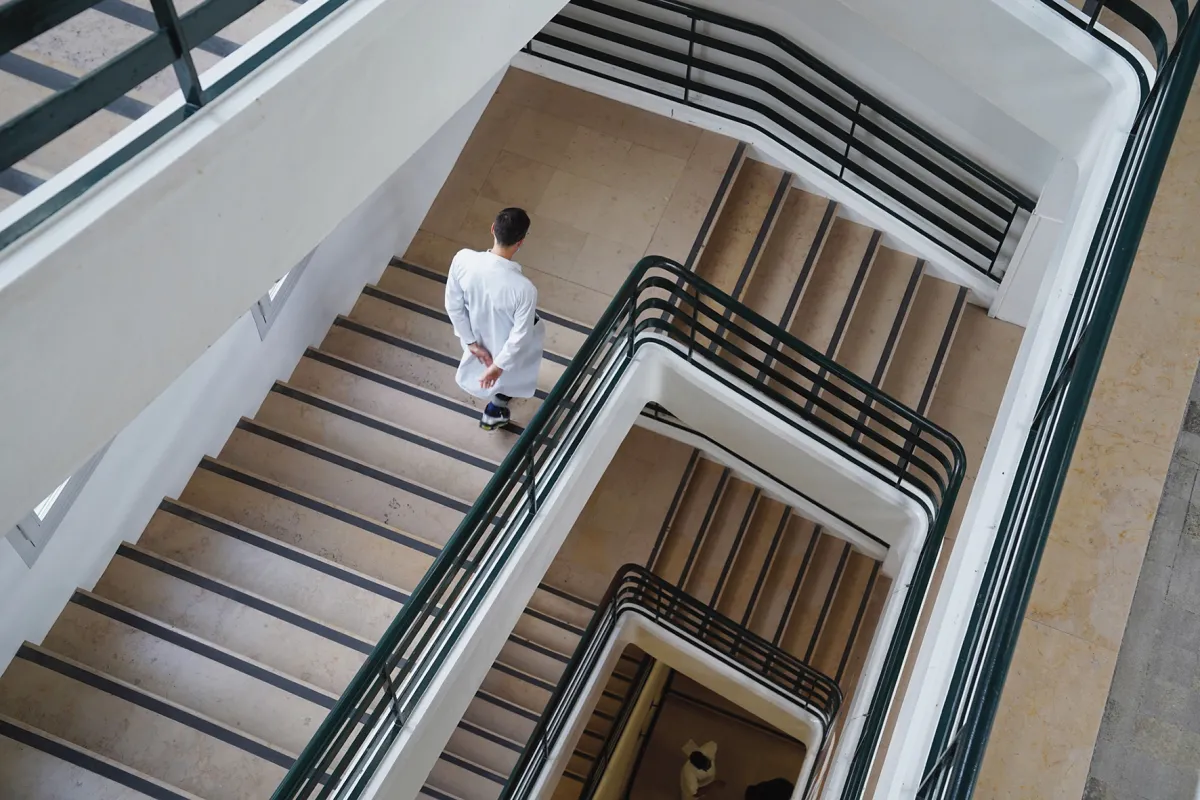

Responding to the “permacrisis”—a 2022 “word of the year” meaning “an extended period of instability and insecurity” and the title for one of the talks at this year’s CPH:DOX film festival and conference in Copenhagen—was a prevailing theme at this season’s March event.
On the brighter side, you could also see an attempt to work through the prevailing panic in the conversations that took place at the CPH:CONFERENCE. Field of Visions’ Charlotte Cook suggested that the current economic course correction is creating less concentration of power among a few select companies and projects, allowing for greater democratization of the field. Rebecca Day, a producer, psychotherapist, and co-founder of an initiative called DocuMentality, is working on an online mental health toolkit for nonfiction makers. And Amsterdam-based producer Anne-Marie Borsboom offered a new peer-to-peer platform called ShareDoc, allowing viewers to donate money directly to the people whose lives are portrayed in documentaries. Full disclosure, this writer was moved to donate to the participants in When Spring Came to Bucha, a reflective and quietly touching observational film about the shell-shocked Ukrainian community of Bucha trying to pick up the pieces. The film premiered at IDFA last November, but thankfully popped up again in Copenhagen, despite a slew of new docs about the war.
There was also a hearty sense of solidarity and community in Copenhagen. After two years of the pandemic, attendance at CPH:DOX, which Variety anointed last week “one of the most influential documentary events of the year,” was robust, with a plethora of prominent industry attendees, lots of smiling filmmakers, and audience-packed theaters (with not a single mask in sight).
Perhaps cognizant of this Eurocentric perspective, two compelling new films reinforced this tension in their content. Danish director Emil Langballe and Polish director Lukasz Konopa’s Theatre of Violence is a compelling and visually rich international courtroom thriller about Ugandan soldier Dominic Ongwen, whose case raises questions about the relationship between Europe and Africa. Forcibly recruited at the age of 9 by the Lord’s Resistance Army, where he grew up to become a barbaric commander in the cult-like Christian rebel group, he was brought to trial by the International Criminal Court. In following Ongwen’s charismatic Ugandan defense attorney, a suave and savvy fixer, the film posits the notions that Ongwen is as much as victim as he’s a perpetrator, and whether Europe’s retributive form of justice is yet another legacy of its colonializing worldview.
For strife within current totalitarian regimes, there were two unsettling examples. This year’s DOX winner Motherland, from Ukrainian-Belarusian director Alexander Mihalkovich and Ukrainian director Hanna Badziaka, is a searing exposé of life in Belarus. Balancing lyrical sequences of haunting letters read aloud from demoralized soldiers within a ruthless military system and a mother seeking justice for her son who was found dead during army training (apparently, not a rare occurrence), the film tracks the crackdowns around the 2020 disputed election of current autocrat and Putin ally, Aleksandr Lukashenko. A startling sequence shot from inside a car as riot police smash through the glass front window and then proceed to beat the people inside displays truly horrifying state violence.
CPH:DOX has a long reputation for embracing more hybrid and innovative documentary forms, which has distinguished it from other major documentary markets such as IDFA and Hot Docs. Indeed, the festival’s main competition only included two head-scratchers: the only U.S. filmmaker present, Jesse McLean’s Light Needs, a kind of chronicle of the secret life of house plants, and Swedish entry Vintersaga, a series of tableaux of Swedish life. And while plenty of entries had some formally boundary-pushing elements, most were accessible to audiences. Even Norwegian director Margaret Olin’s ravishingly beautiful nature film Songs of Earth, composed almost entirely of images of snowy mountainous landscapes and her elderly parents, entices with its poetic look at aging (of people and the planet), and above all, a loving approach to its subject matter.
A more visually enticing essay film, Videocracy (2009) director Erik Gandini’s latest After Work examines the nature of labor in extremes. On one side, the film sharply examines the rise of the Calvinist “work ethic” and today’s workaholics, from a laughable American motivational speaker to an Italian gardener to South Korean office workers; on the other, and even more eye-opening, there are revelations of those who do not work at all, from a generation of hedonistic young Italians who seem perfectly happy with underemployment to a class of citizens in Kuwait whose oil-rich economy allows them to get paid for doing nothing—which turns out to be less utopian dream than purgatorial nightmare.
A Still Small Voice (2023), the film arrives at a similar conclusion that resonates deeply during our times of permacrisis. “To care for people,” Kader says, “we need to care for us a bit, too.”
___________________________
1 Andreas Dalsgaard, director/producer, Elk Film
2 Charlotte Cook, Field of Vision
3 Julie Goldman, Motto Pictures
4 Jason Ishikawa, Cinetic Media
5 Brian Newman, Sub-Genre
Anthony Kaufman is a freelance journalist, film instructor at the New School, DePaul and Loyola Universities, Senior Programmer at the Chicago International Film Festival and the Doc10 film festival, and co-author of Hope for Film: A Producer's Journey Across the Revolutions of Indie Film and Global Streaming.




